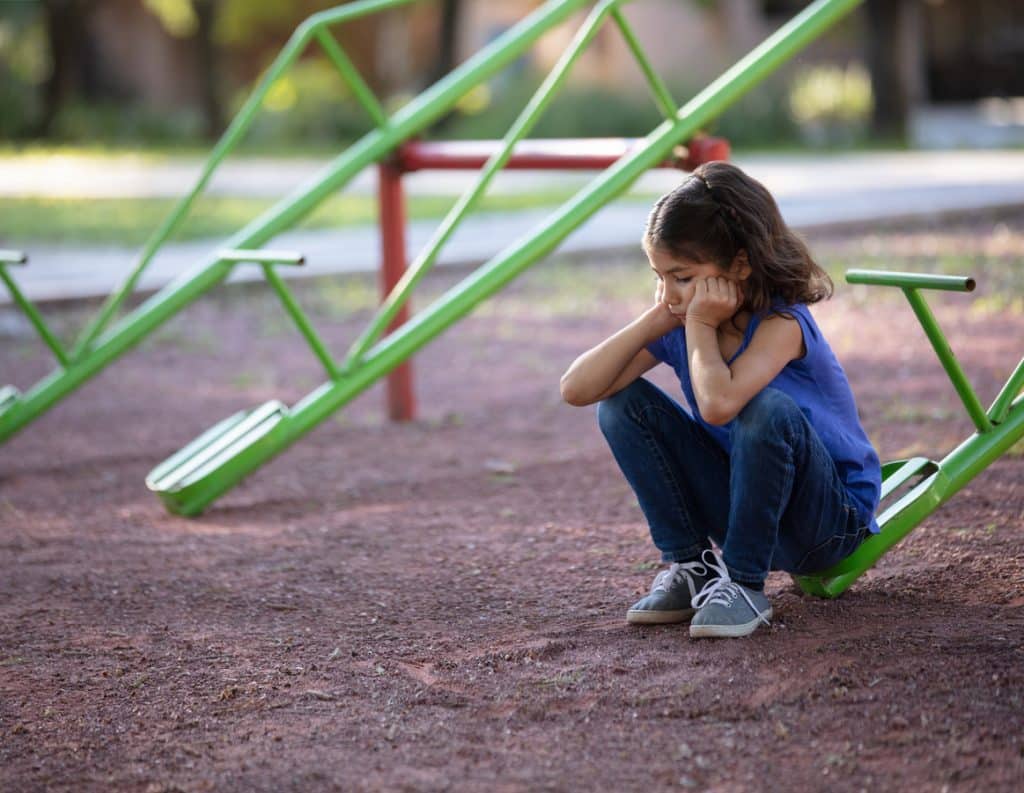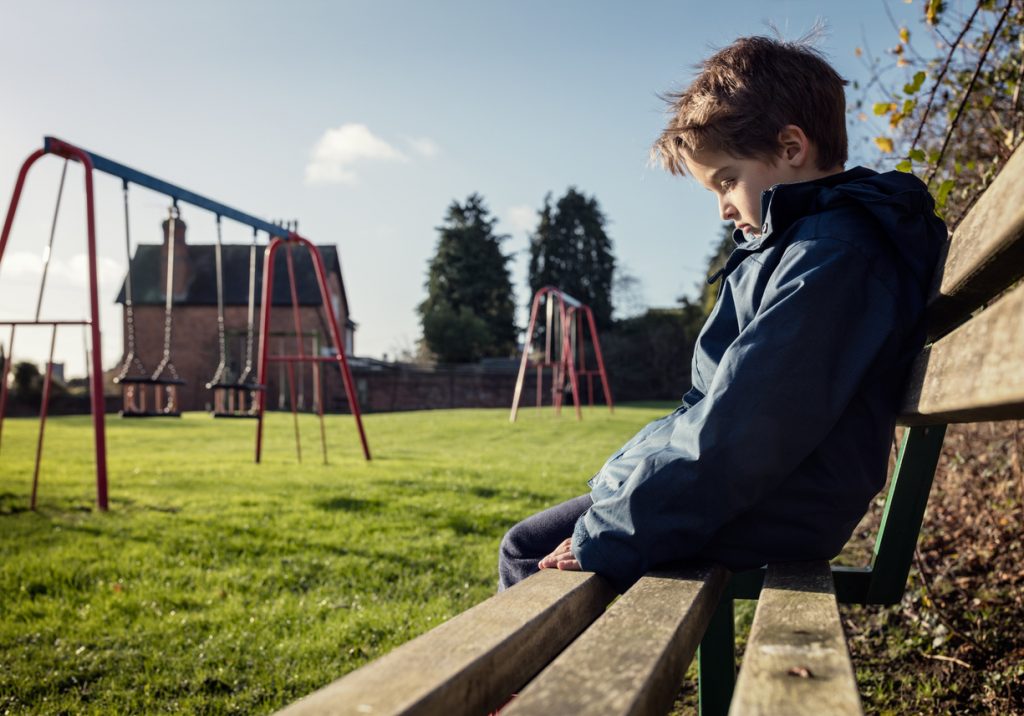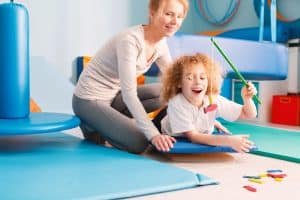
There is one phrase I’ve been advocating against for a few decades now, and it’s asking a child, “Did you have an accident?” when referring to bowel or bladder leaks.
This is an extremely common phrase both parents and healthcare professionals have been saying forever. Change isn’t always easy, but I’d like to share some information to compel you to modify the way you ask children about bowel and bladder leaks, plus take this opportunity to explain the impact this can have on a child’s entire life.
So, What if I Use the Word “Accident”?
From a psychological standpoint, I’d like you to put yourself in a child’s shoes for a moment. “Did you have an accident” implies there is a problem with the child themselves. Children are very sensitive to the words we use, and internalize quickly as their developing brains are trying to make sense of the world around them.
Where do I fit? How do I receive love? Am I bad?
These thoughts are just samples of how a child may think after being scolded for having a bowel or bladder leak. From a survival standpoint, children are hard-wired to seek approval from those around them (we all are). Disapproval means separation from your human group, and on a deep level, that would mean death. We need each other.
Children don’t want to disappoint you! When you use the word “accident”, you’re implying that the child did something wrong. For example, If they accidentally spilled a glass of milk, maybe they weren’t paying attention, or they didn’t use both hands like you’ve told them to in the past. It’s something that would likely frustrate you, and make the child feel bad at the same time. Unfortunately this is exactly what it feels like when we use the terminology surrounding bowel and bladder leaks.
Treating Bowel and Bladder Leaks

The International Children’s Continence Society (ICCS) actually says that treatment for bowel bladder dysfunction (BBD) should begin no later than age 5. They have determined that treatment is not only justified, but it’s considered mandatory by age 5 because of the greater psychological impact BBD has on children the older they get.
Although this is considered standard of care, it’s all too common for pediatricians, nurses, and family doctors alike to tell parents to “just wait it out” and that their children “will eventually grow out of it”.
According to the ICCS, only 15% of children per year who suffer from bedwetting will grow out of it without specific treatment. It is assumed that there is a genetic link, but the causes are still being explored.
As you can see, BBD is not always so simple. These issues are complex, and treating the whole child means you have to take the psychological impact into consideration when speaking to these patients.
What if I Don’t Want to Change What I’m Saying?
It makes sense. We all have things we’ve done a certain way for a long time, and we like it that way.
It would be like me asking you to take a different route driving to work tomorrow. If I asked you to do it for no good reason, you would likely put up at least some resistance to the idea. But what if I told you there is a 30-foot deep sinkhole on your normal route? Might you change your mind a bit more easily, then?
Think of the psychological impact on our children as the 30-foot deep sinkhole. The ramifications of treating BBD like it’s nothing, not a big deal, or strictly a behavioral issue are grave. To say that “it doesn’t matter” at this point, in my humble opinion, simply demonstrates a lack of concern for the child in front of you.
These children are in a constant state of anxiety about the risk of public embarrassment. BBD in children can be a very isolating condition. They often feel alone and don’t even tell their closest friends about their problems.
What is the Impact of Bowel Bladder Leaks in Children?
Children already have very little control in their day-to-day lives. Losing control of their bowel or bladder only adds to their stress. Children who suffer from BBD have to deal with a slew of emotions that are foreign to the child with no bowel or bladder control issues.
These children suffer from shame, guilt, and embarrassment on a daily basis. They’re fearful of being made fun of, and it’s more difficult for them to make friends. They often feel like something is “wrong” with them, and that they’re “dirty”.
Sometimes children who leak can’t smell themselves as the scent is too frequent and familiar for them to notice. This leads to bullying, name-calling, and worse.

Parents and providers need to be your childrens’ allies. You need to be a champion for them, and ensure they always know that even though their bowel or bladder has some issues, they are not a problem. They are not a burden. And they are safe with you.
Don’t add insult to injury by telling children they had an “accident”. You’re essentially blaming the child when in reality, their bodies have simply betrayed them.
Over 30% of children with BBD also have a diagnosed mental health condition that goes away once the BBD issues are resolved. This tells us the BBD is the source of the psychological distress, not an after-effect of laziness or stubbornness. Once BBD issues are resolved, children’s self-esteem rises tremendously.
How Can I Be an Ally for Children with Bowel and Bladder Leaks?
Would you like to help children suffering from BBD and don’t know where to start? You can make an impact with nothing more than a well-intentioned heart. Start by eliminating the word “accident” from your vocabulary surrounding children’s bowel and bladder dysfunction.
Instead of asking, “Did you have an accident?”, instead ask your child if their “bowel or bladder had a leak”.

This very simple shift makes a world of difference to a child in distress. Using this alternate language empowers the child. They are not the problem. Their bowel or their bladder is a part of them that isn’t working correctly. This allows the child to take control of their bowel or bladder and become “the boss”.
It’s much more effective to crown your child as their “Bladder Boss”, rather than telling them to “take responsibility for themselves” and stop bedwetting. Yes, unfortunately I’ve had patients tell me this happened to their child.
Bring your patients into the healing process. They are part of their care team after all! In all my years working with kids suffering from bowel and bladder dysfunction, I have only ever one time seen a child who pooped their pants on purpose. Once!
Never assume children are attention seeking or that their BBD is purely behavioral. Always assume there is a physiologic issue first, clear it, then you can investigate a behavioral concern.
Abandon the “A” word (“Accident”)
So, my challenge for you this week is to notice — catch yourself at least once when you’re about to use the “a” word, and ask, “Did your bladder have any leaks?” or, “Did you bowel have a leak?” instead.
Allow your patients to join in on the process of learning their body parts, and learning how some of their parts may not be working optimally right now, but you’re here to help. Allow the child to join alongside you as you support them with the proper tools, exercises, and education to succeed.
These children aren’t lazy, they just need your help. If you’ve not already checked out my professional courses on becoming a pediatric pelvic floor therapist, click the link below to learn more now.
I have both in-person and virtual training options available. Learn with me live or at your own pace. Either way, I am always available for feedback, questions, and mentorship as you journey through this rewarding career.
Sources:
http://i-c-c-s.org/wp-content/uploads/2022/06/Incontinence-Psychology-Leaflet.pdf
